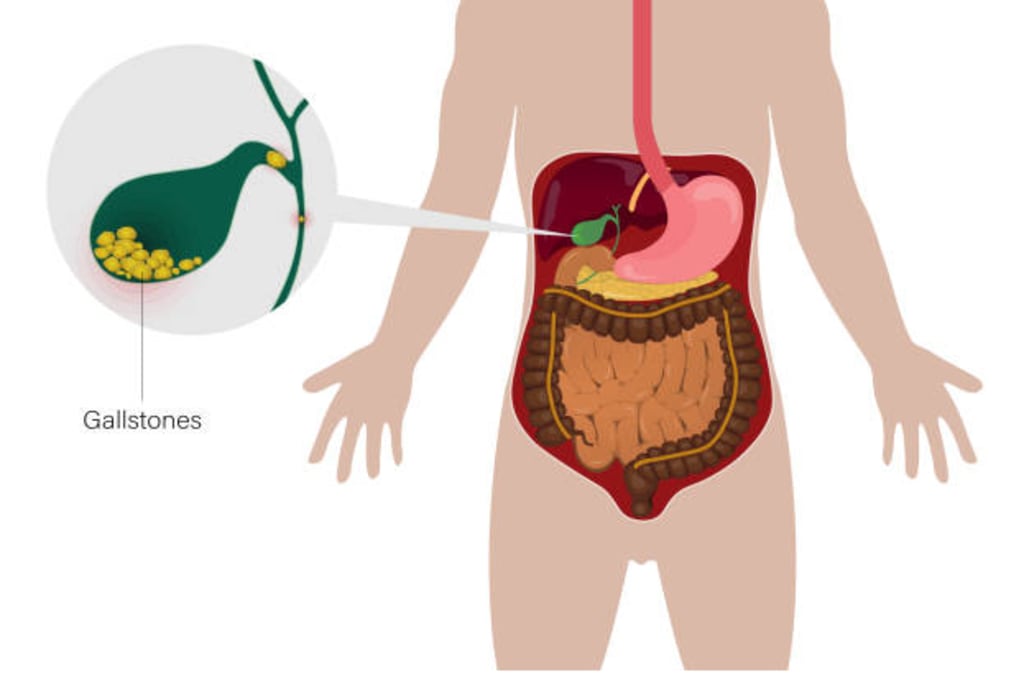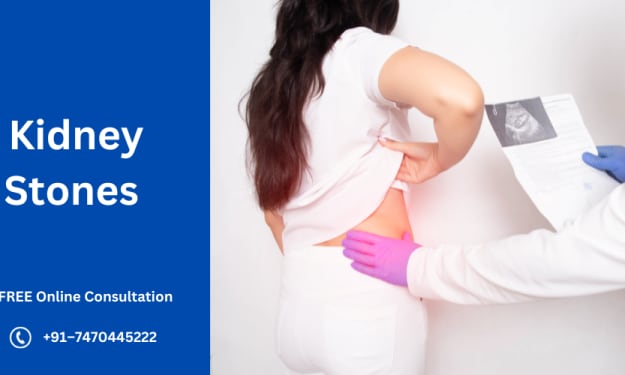Understanding Gallbladder Stone Symptoms: Recognizing Signs and Seeking Treatment
Gallbladder Stone Symptoms

The gallbladder plays a vital role in the digestive system, storing bile produced by the liver and releasing it to aid in the digestion of fats. However, gallstones can form within the gallbladder, leading to various uncomfortable symptoms and potential complications. Recognizing the signs of gallbladder stones is crucial for early diagnosis and effective treatment. Here, we'll delve into the symptoms, causes, and available treatments for gallstones.
What are Gallbladder Stones?
Gallstones are hardened deposits that form in the gallbladder, typically from an imbalance in the substances that make up bile. They can vary in size, ranging from tiny grains to larger stones. Gallstones can be made of cholesterol or bilirubin, and they might cause no symptoms initially. However, they can lead to severe discomfort and complications if left untreated.
Symptoms of Gallbladder Stones
Abdominal Pain: One of the most common symptoms of gallstones is sudden and intense pain in the upper abdomen, often radiating to the back or shoulder blades. This pain might last for several hours and could occur after meals, particularly those high in fat.
Nausea and Vomiting: Gallstones can cause nausea and vomiting, especially when the pain becomes severe.
Indigestion and Bloating: People with gallstones might experience indigestion, bloating, and gas after eating, particularly fatty foods.
Changes in Stool Color: Gallstones can cause the stool to become light-colored or clay-colored due to the obstruction of bile flow.
Jaundice: In some cases, gallstones can block the bile duct, leading to yellowing of the skin and whites of the eyes (jaundice).
Causes of Gallbladder Stones
Several factors contribute to the formation of gallstones:
Excess Cholesterol: When there's an excessive amount of cholesterol in the bile, it can form crystals and eventually gallstones.
Bilirubin Imbalance: High levels of bilirubin in the bile can lead to the formation of pigment gallstones.
Gallbladder Emptying Problems: If the gallbladder fails to empty properly or completely, it can contribute to stone formation.
Obesity and Rapid Weight Loss: Being overweight or losing weight too quickly can increase the risk of developing gallstones.
Seeking Treatment for Gallbladder Stones
If you suspect you have gallstones or experience symptoms associated with them, it's essential to seek medical advice promptly. Diagnosing gallstones often involves a physical examination, imaging tests like ultrasounds, CT scans, or MRIs, and blood tests to check for complications.
Treatment Options
Watchful Waiting: Sometimes, if the stones are small and not causing severe symptoms, a doctor might recommend monitoring them without immediate intervention.
Medications: Certain medications may dissolve gallstones, but this treatment can be slow and isn't suitable for everyone.
Surgery: The most common treatment for symptomatic gallstones is surgery to remove the gallbladder (cholecystectomy). This procedure is often done laparoscopically and is generally safe and effective.
Lifestyle Changes: Adopting a healthy diet low in fat and high in fiber, maintaining a healthy weight, and avoiding rapid weight loss can help prevent gallstones.
Yogveda's Approach to Gallstone Treatment
Yogveda offers an Ayurvedic approach to kidney stone and Gallstone treatment and medicines to aid in removing kidney stones. While they primarily focus on kidney stones, some Ayurvedic practices might have a holistic approach that could indirectly benefit gallbladder health. However, it's crucial to consult healthcare professionals specialized in gallstone treatment for specific guidance and care.
In Conclusion
Understanding gallbladder stone symptoms is crucial for timely diagnosis and appropriate treatment. While some people might have gallstones without experiencing symptoms, others may endure severe pain and complications. Seeking medical attention upon observing any signs of gallstones is vital for proper evaluation and management. With prompt intervention, individuals can effectively manage gallbladder stones and prevent associated complications, ensuring better digestive health and overall well-being.'
Visit here : https://yogveda.in/stone-treatment/
About the Creator
Same Andesron
I'm a passionate writer who finds joy and fulfillment in exploring a multitude of niches through my words. Writing isn't just my profession; it's my chosen craft and beloved hobby.






Comments
There are no comments for this story
Be the first to respond and start the conversation.